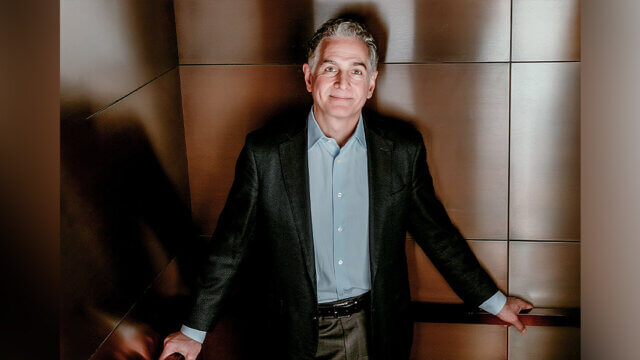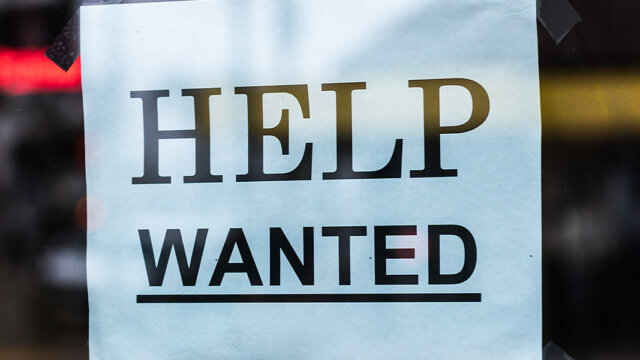NATIONAL REPORT—In the latest edition of “The Forum: An AHLA Experience” webinar series, Chip Rogers, American Hotel & Lodging Association (AHLA) president/CEO, was joined by Chicago Mayor Lori Lightfoot and Mark Hoplamazian, president/CEO of Hyatt Hotels Corporation, to discuss leadership and its role during the pandemic and a time of civil unrest.
For Lightfoot, who noted that she came into office “facing a record deficit, a teacher strike and then a global pandemic, and on top of it civic unrest in the streets,” what has enabled her to weather the storm is the strength of her team.
“You’ve got to have a team with vision, fortitude and the ability to adapt to an ever-changing environment,” she said. “Nothing that we’ve experienced, particularly in the last six months, anybody could have predicted, and we’ve endured more challenges than any city normally would in a generation, let alone in six months. And the thing that I know has sustained me as a leader and really kept me going is the strength of the team around me.”
Hoplamazian echoed the mayor’s thoughts on team strength and added, “At Hyatt, I would say the other dimension that’s served us extremely well and has been essential is our own purpose: that is a higher purpose that we aspire to, which is to care for people so they can be their best. That purpose has actually been our guiding light as we have managed through what has turned into a significant adjustment.”
The Hyatt CEO then brought up two things that have been important to him and his company during this time of crisis.
“On a personal level and on behalf of my colleagues, I have focused on well-being and self-care as an essential piece of the equation. Yes, there’s a lot of focus on the physical well-being aspects in relation to the virus, but also really paying attention to mental well-being, and emotional and psychological well-being,” he said. “There’s also definitely a focus on the community. I’m really blessed to be a leader of a company in Chicago. The Chicago business community is uniquely engaged and unified in trying to help the mayor and other organizations advance the interest in Chicago. Like every other major city in the U.S., Chicago has had a significant number of challenges with respect to employment levels, the virus and the economy. What the effort around Chicago has yielded is a lot of connections to other business leaders, which has been very beneficial.”
Mayor Lightfoot brought up that it is “critically important to make sure you don’t lose sight of your values,” adding, “What we’ve been focused on is making sure that we keep our values—equity, inclusion and making sure that we build literal wealth but also emotional wealth across the city—front and center. It’s hard to do, and there’s obviously price tags that are attached to all those. But if you if you lose sight of your values in a crisis, you’re going to be lost, and when you come out of it, if you come out of it, you’re going to have to start literally from from ground zero; you lose legitimacy both internally with your people, but you also lose legitimacy externally with the various audiences that all of us are trying to reach.”
Revitalizing Areas of Chicago
Rogers asked Mayor Lightfoot about Invest South/West, an initiative aimed to revitalize neighborhoods in the South and West sides of the city.
“Invest South/West was born out of a lot of conversations that I heard or had with people over the course of the campaign and the beginning of the administration,” the mayor said. “ We saw this thriving downtown central business district, but our neighborhoods were starving, and what were the results of that? We were seeing a loss of population and really a loss of hope. People were leaving the city because they didn’t feel like they could really create a life here in Chicago. And, ultimately, if you just want to do dollars and cents, when you’ve got a shrinking population, it’s a shrinking tax base, and a shrinking tax base puts more pressure on everybody else that remains. While I think it was a morally correct thing to do, which is to really focus on building up capacity in our neighborhoods and creating vibrant neighborhoods in areas that really hadn’t seen any city investment and private capital in a long time, it also made economic sense to me as well.
“So, Invest South/West is looking at 10 key commercial corridors on our South and West sides that hadn’t seen a lot of economic development, but really co-curating what that future would look like,” she continued. “And while the effort was slowed in the rollout because of the pandemic, what the pandemic really showed us is the areas where we were vulnerable were actually the areas that we needed to lean into and develop even more expeditiously.”
Hoplamazian, who noted that he sits on the board of Skills for Chicagoland’s Future, an organization focused on and dedicated to finding jobs for people who are coming out of disadvantaged backgrounds or disadvantaged neighborhoods, discussed his company’s efforts to become more diverse.
“At Hyatt, we are a global company and we operate in every possible marketplace, culture and environment around the world, and the diversity of our workforce is just magnificent. So, too, is the diversity of the guest space that we serve,” he said. “Being in a diverse environment and being highly inclusive has been inherently a part of what our culture has been about since we were founded back in the mid-1950s.”
He continued, “A number of years ago, we focused very intensively around opportunity. These are young people who are either out of school and/or out of work, and trying to find pathways to bring them into the workforce. We believe, as does AHLA through the Opportunity Youth programs, to identify pathways for people who don’t have great skills or don’t have significant skills because we as an industry have many entry level jobs that allow us to bring people in and then give them a career opportunity to train and advance. Three years ago, we made an extraordinarily ambitious goal as a company to hire 10,000 opportunity youth by 2025. I’m proud to say that we were on track as of the end of 2019, when we employed about 2,000 opportunity youth across the world. Of course, COVID-19 has created a different type of challenge for us, and our hiring levels are going to be back with us as soon as travel recovers, but for the time being it’s a little less than clear exactly what the profiles look like.”


